Fuel: Why are drivers queuing at petrol stations?
- Published
- comments
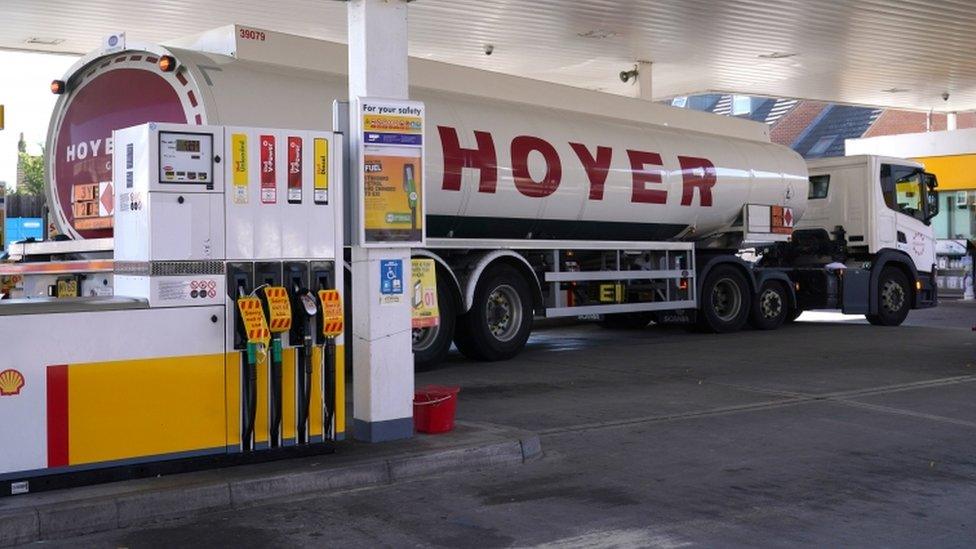
The UK has seen a huge shortage of lorry drivers
Why are petrol station queues so long and what's being done?
You may have heard people talking a lot about fuel recently or seen queues of drivers outside petrol stations.
It's because some petrol stations have been forced to temporarily close due to a shortage of delivery drivers.
Senior ministers met this weekend to try to find a solution and have agreed to allow 5,000 temporary visas for foreign fuel tanker and food lorry drivers, which means they will be able to work in the UK for three months, until Christmas Eve.
In a joint statement from by petrol companies including Shell, ExxonMobile and Greenergy, the industry said the situation was being caused by "temporary spikes in customer demand - not a national shortage of fuel".
Brian Madderson, from the Petrol Retailer's Association (PRA), said shortages were down to "panic buying, pure and simple", with oil companies prioritising keeping motorway service station pumps topped up.
The government has started deploying its fleet of reserve petrol tankers to help boost fuel deliveries. The tankers are being driven by civilians, but ministers say soldiers will also be used to in the next few days. Around 150 military drivers are ready to drive the fuel tankers, and a further 150 members of the army will support them.
The fuel industry says the situation at the pumps has started to improve and it was working with the government to maintain regular deliveries.
A number of fuel suppliers and retailers, including Shell UK, BP and Esso, said in a statement released by the government's Department for Business, Energy and Industrial Strategy: "We remain confident that the situation will stabilise further in the coming days and encourage everyone to fill up as they normally would to help forecourts return to normal."
There are still long queues in many areas, but the PRA - which represents nearly 5,500 of the UK's 8,380 filling stations - has said there are "early signs" the pressure is starting to ease at the pumps.
The number of petrol stations running dry has more than halved since the weekend.
Have you been affected by the fuel situation? Has your family had to queue up for petrol or cancel a journey in the car? Let us know in the comments.
Is there a fuel shortage?
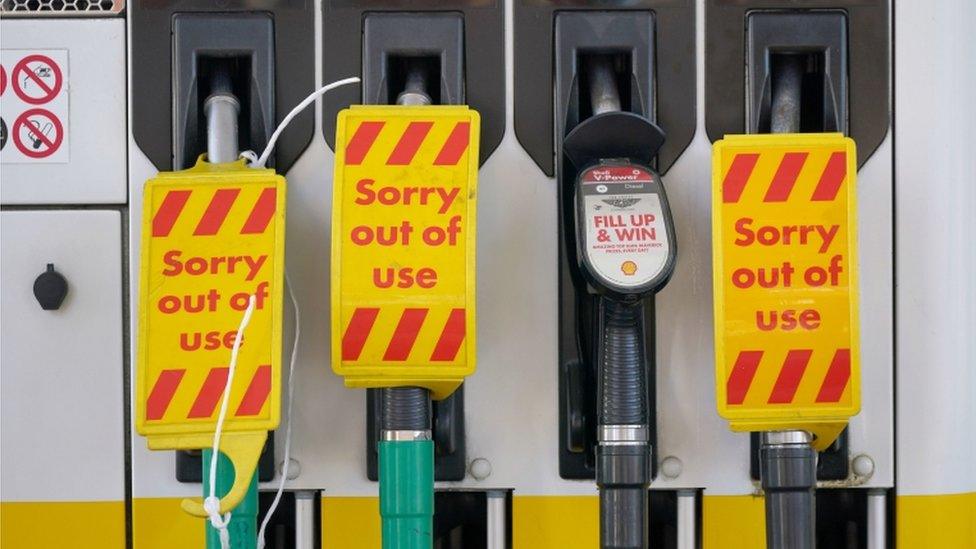
Some petrol stations have had limited supplies of fuel
The government has said there is no shortage of petrol or diesel in the UK at the moment.
The transport secretary Grant Shapps said oil refineries had "plenty of petrol" and that the government could bring in the army to help drive fuel tankers if needed.
However, there is a small percentage of stations that have limited supplies of fuel and others that have had to shut completely.
"There is no shortage of fuel and thousands of forecourts are operating normally with just a few suffering temporary supply chain problems," said Edmund King, the president of the motoring association, The AA.
Heavy Goods Vehicle (HGV) drivers transport items between different locations. They move goods using huge lorries and spend lots of time on the roads - but at the moment there are not enough of them to keep deliveries going.
Why is this happening and what's going to happen next?
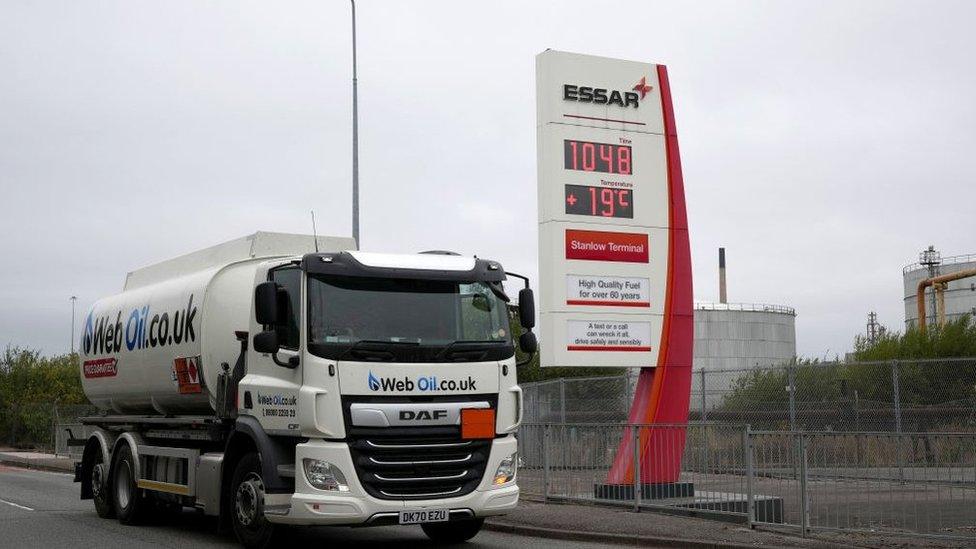
Some have suggested drivers should be brought in from the EU
Despite the government asking people to carry on as normal, the lack of HGV drivers is still a concern for many.
It's estimated that the UK currently needs about 100,000 more HGV drivers to meet demand. Driver shortages have also affected supply in other industries, including supermarkets.
There are worries that lots of older drivers are now looking to retire and the industry isn't attracting younger people because of the nature of the job.
As well as this the coronavirus pandemic meant that lots of drivers from Europe went back home due to travel restrictions, and very few have returned.
This is partly due to new changes brought in by Brexit which have meant that travelling through the UK borders has become more difficult and takes longer for drivers.
The decline in the value of the pound, compared to the Euro, also means that being paid in pounds is less appealing to European workers. The pandemic has also created a huge backlog in HGV driver tests, so it's been very difficult to get enough new drivers up and running.
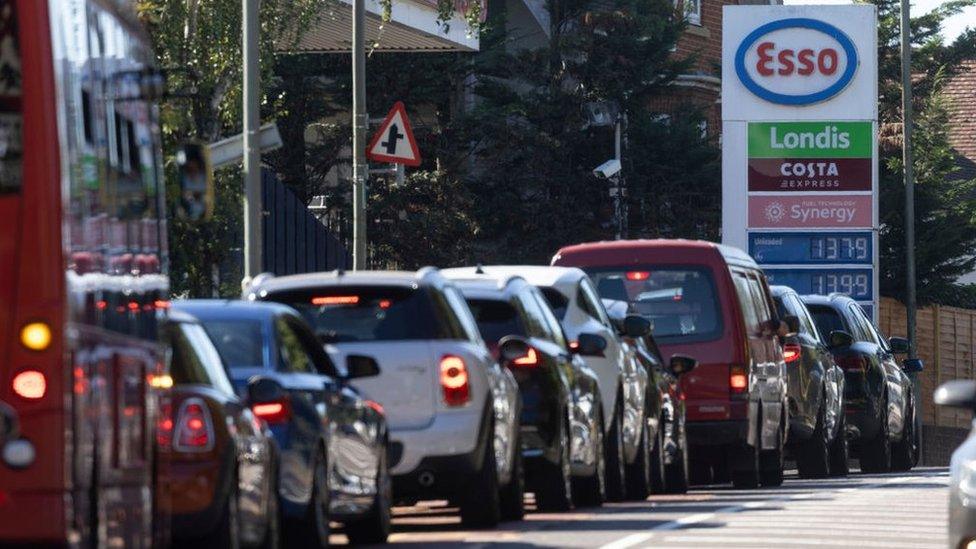
Some people have had to queue to get fuel
The government has now confirmed that 5,000 fuel tanker and food lorry drivers will be able to work in the UK for three months, until Christmas Eve.
Ministers have also started deploying its fleet of reserve petrol tankers to help boost fuel deliveries, driven by civilians, and say soldiers will also be used to in the next few days.
The Road Haulage Association said the announcement "barely scratches the surface... validity to Christmas Eve is not long enough from where we are now".
However, Logistics UK said the new announcement was "a huge step forward in solving the disruption to supply chains".
- Published21 September 2021
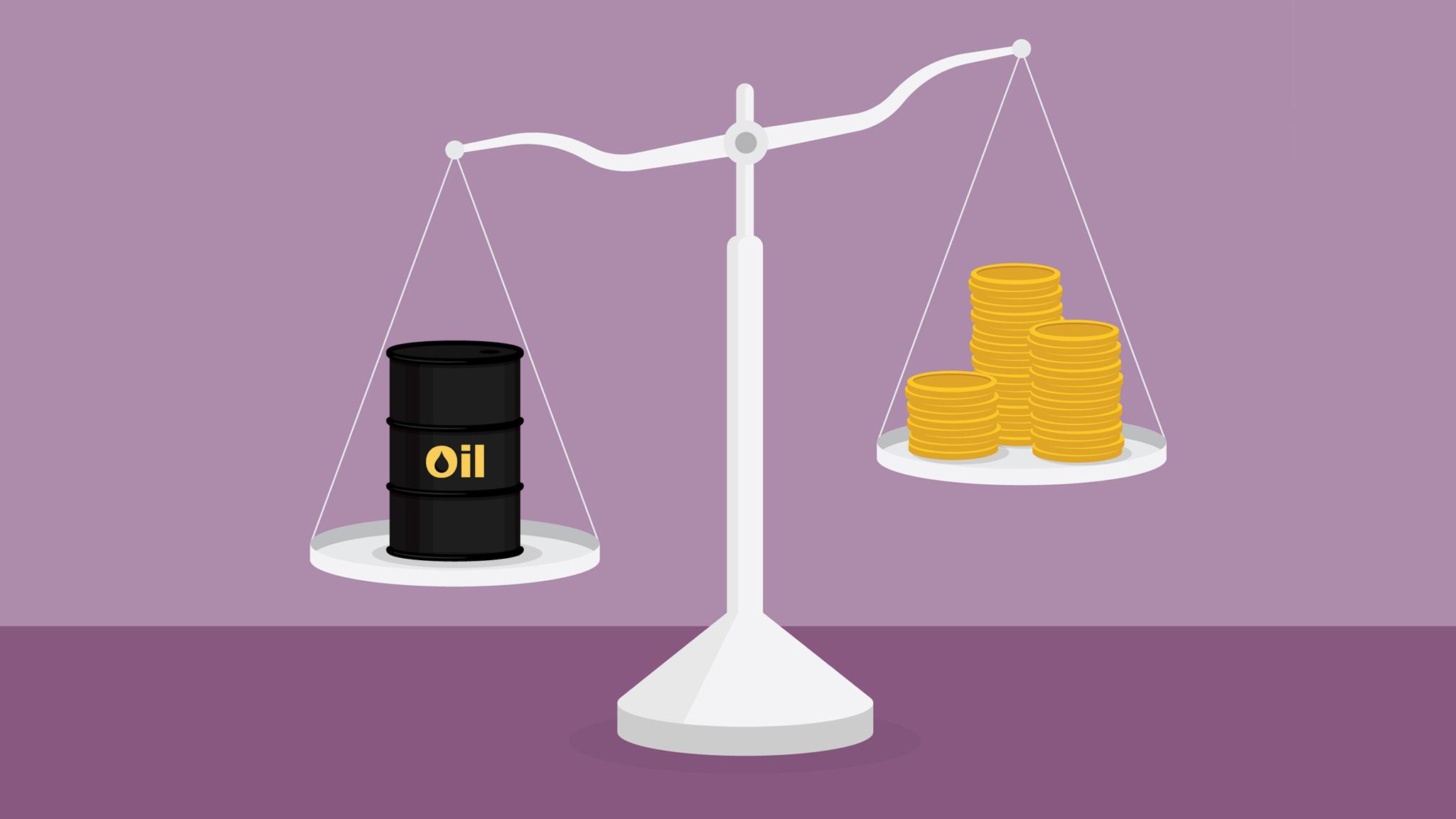
- Published2 July 2021

